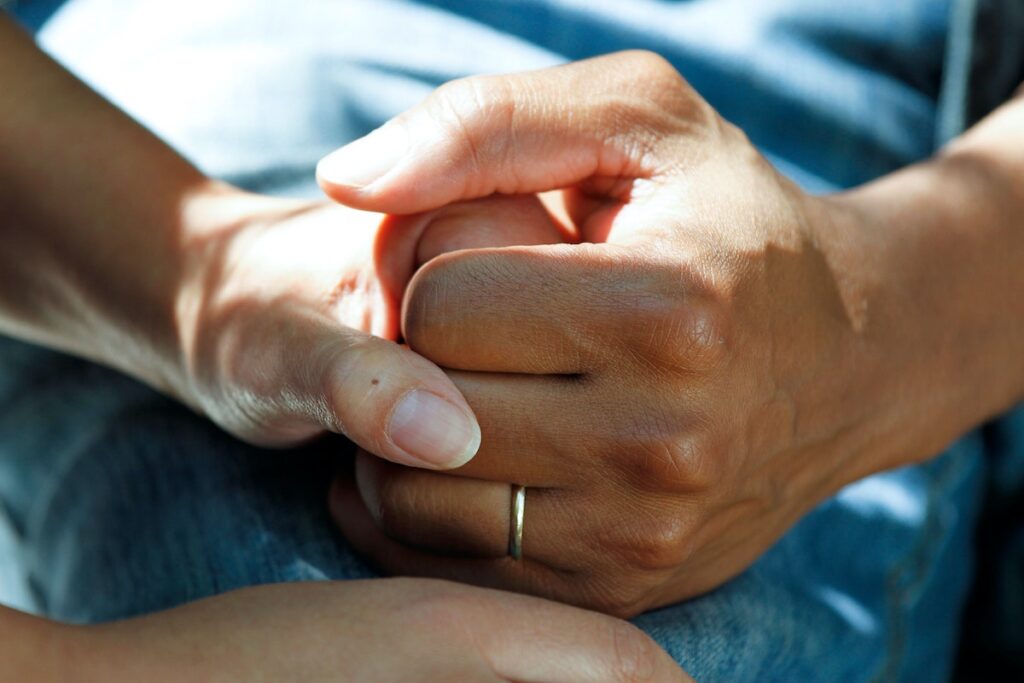How to make the end of life experience special
If your life was a car, you wouldn’t let someone else drive it. It’s your hands on the wheel and it’s you who plans the journey. Why plan for everything else and not this? If you don’t plan or at least tell your family what you want for your end of life care, then all the decisions may be made by someone else, hopefully, a relative, but perhaps a professional who never really knew you.

We are braver than we think
I was in the very privileged and special position of supporting a very close and lovely friend through his terminal illness and, of course, our conversations turned to what he wanted at the end of his life and afterwards for his funeral.
We took baby steps at first, as verbalising the end of life was a huge hurdle for us both but once we started, it became easier and less scary. There was an openness that was refreshing in its honesty. We let the humour in too and it helped. It didn’t lessen the seriousness of the situation, but what it did was soothe and help keep a sense of normalcy for us through this unfamiliar territory.
As the reality sank in, the humour assisted our acceptance. Being at home meant he was unhindered by the barriers of hospital procedures, enabling more spontaneous conversations. He told me, “Everybody needs this – it’s great. I feel like I will continue even after I’m gone. Like, I don’t just stop”.
Honesty is a great healer
There’s no right or wrong way to deal with a loved one dying, but it is very much a shared experience because the people who are important to us are the ones who share this experience with us on a daily basis. Being able to make important decisions, choosing the things that were important to him gave a real semblance of control and a sense of continuing independence.
During this experience, one thing that really stood out to me was communication. Not just communicating what the person who is dying wanted, but communicating how we each felt at different stages and times as we neared the end of his life.
There was great comfort for his family knowing that they were doing exactly what he wanted, enabling them to concentrate on other things. They had a feeling that he was holding their hands emotionally when he slipped to that place where he was unable to have a voice to say how he wanted things to be. This gave them the strength and courage they needed to carry on.
Open your heart
There comes a time to say what needs to be said. A time of preparation but also of doing. A time to finish all unfinished business. It’s a time of honesty, to open your heart and to say all that is there. Following any loss, we can suffer the pain of unresolved grief if we feel there is something we should have said or done, or even shouldn’t have said or done.

Apologise for the things you need to apologise for. If there needs to be forgiveness, now is the time to ask for it or to give. Do not put off saying these things through fear and then find it is too late. Remember the highlights of your life together, telling the person you are about to lose what it all means to you. Open your heart and say “I love you”. Take as many walks down memory lane as you can, evoking the warmth of happy times.
Try to reflect not on the end that is approaching, but on a life well-lived in shared love and experiences. This helps to give you a rounded sense of leaving nothing unsaid between you, good and bad and it will be a giant step in you both being emotionally complete. So much so that you can be in that place where you can share beautiful moments of deeply comforting silence. We can even find humour and things to make us smile. Sometimes we find our strength in laughter. It is a wonderful reliever of tension and releases endorphins into the body, relaxing us and drawing us together.
Knowing we are doing the right thing is the greatest soother
My friend died at home with the care he chose and as he wanted, with his wife and daughters by his side. His funeral celebration was amazing. Amazing because he tweaked it, knowing that it wasn’t just imagination but it would be for real. And it was. He will always be remembered. Not just for teaching us how to die, but for teaching us how to live.
Lianna Champ has over 40 years of experience in grief and bereavement counselling and is the author of practical guide, How to Grieve Like A Champ.
If you found this useful, you may be interested in reading How to find new ways to unite in grief and celebrate a loved one’s life and What are the 7 stages of grief?
If you’re struggling with grief, you may benefit from working with a therapist. Bereavement counselling aims to get you to the point where you can function normally – however long it takes. To find a counsellor, simply browse profiles until you find a therapist who resonates with you and send them an email.

Find a therapist dealing with Bereavement
All therapists are verified professionals





